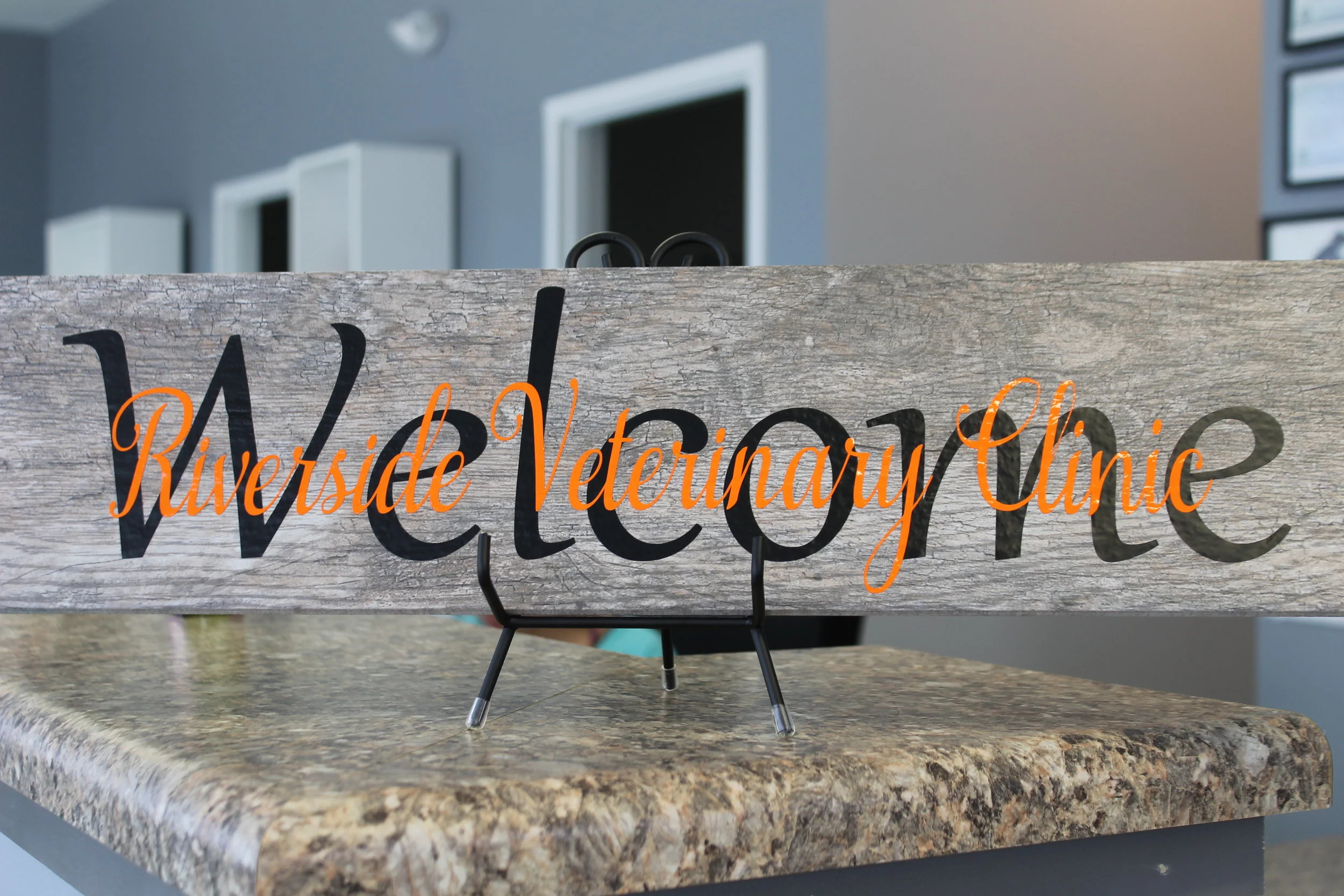
Preventative Care
Wellness exams are recommended every 6 months as our pets age, or more frequently for chronic disease.
For some conditions, early detection may help improve outcome, or prolong a more comfortable quality of life.
For other conditions, routine monitoring, such as blood work, is important to help gauge progression of disease and whether other treatment options may be appropriate.
Vaccination
Vaccination is an important principle of prevention. We recommend following the AAHA or AAFP protocols for dogs and cats. Vaccine titers may also be discussed with the doctor.
Surgery
A number of different soft tissue and orthopedic surgeries can be performed at our practice. The risks and benefits of the procedures should always be assessed for each individual.
Diagnostics
We offer a wide range of in-house diagnostics for prompt diagnosis and treatment.
Dentistry
Our doctors make every effort to preserve as many teeth as possible. However, extractions are necessary when decay has made the tooth unsalvageable or when you have an advanced periodontal disease.
Canine Vaccination
AAHA canine core vaccines include - Distemper, Adenovirus, Parvovirus and Rabies.
Non-core, but recommended include Bordetella and/or Leptospira 4-way, based on individual lifestyle needs.
Optional vaccines based on exposure include Canine Influenza.
You can see - www.aaha.org for more information regarding vaccines. We will be following the AAHA protocol as follows:
1. DA2PP - 8 weeks, 12 weeks, 16 weeks, +/- 20 weeks for the initial puppy series. The next booster will be due 1 year later, then every 3 years. Distemper and parvo titers can be discussed with the doctor.
2. Rabies - 1 year vaccine performed between 12-16 weeks of age. Then the 3 year vaccine can be used thereafter.
3. Leptospirosis - two vaccines given 3-4 weeks apart if they have not been previously vaccinated, then given every 12 months. Leptospirosis is a zoonotic bacterial infection that can effect both people and pets. To learn more about this disease, please see the attached web page. www.petmd.com/dog/conditions/infectious-parasitic/c_multi_leptospirosis
4. Bordetella - the first vaccine is given between 8-16 weeks of age. Then boostered every 6 to 12 months depending on individual exposure.
Feline Vaccination
Feline core vaccines include - Panleukopenia, Herpesvirus, Calicivirus, Rabies and just recently Feline Leukemia for kittens.
Leukemia vaccine is now considered core by the AAFP in kittens, due to their unknown future, or highly recommended to outdoor/at-risk pets.
You can see www.catvets.com for more information regarding vaccines. We will be following the AAFP recommendations as follows, using non-adjuvanted vaccines:
1. FRCP (non-adjuvanted) given at 8 weeks, 12 weeks, then 16 weeks. Follow up booster is given 1 year later, then every 3 years.
2. Rabies (non-adjuvanted) between 12-16 weeks of age, then every 1 to 3 years.
3. FELV (non-adjuvanted) - recommended at 12 and 16 weeks of age, then once a year thereafter for at-risk cats.
Surgery
Ovariohysterectomy (removal of the ovaries and uterus) vs ovariectomy (removal of the ovaries only) is recommended for female dogs. These two procedures will be discussed with the owner to decide the best option for the pet. The age of spaying will vary based on the breed and or size of the patient.
Castration (neutering) - recommended for male dogs. The recommended age of neutering will vary based on the breed and or size of the patient.
Soft tissue surgery - includes mass removals, enucleation, gastro-intestinal procedures (enterotomy, resection and anastomosis), splenectomy, cystotomy, and diagnostic biospy (liver, intestines, lymph node, etc.).
Orthopedic surgery - limited procedures include amputations (tail, toe, limb) and femoral head and neck osteotomy.
Diagnostics
Radiographs - digital x-rays available in clinic.
Blood analysis - chemistry, electrolytes, complete blood count, blood smear analysis, microhematocrit/total solids.
Heartworm testing.
Canine Parvo test.
Feline AIDS and Leukemia test.
Feline pro-BNP test.
Fecal floatation/centrifugation.
Microscopy - ear mite detection, skin scraping, impression smears, skin and mass cytology.
Dentistry
All dental procedures are performed under general anesthesia. Not all types of problems are readily visible in an awake patient. The teeth are cleaned by ultrasonic scaling, the gingiva and roots are probed to check for attachment loss, pockets, fractures, and root exposure. If there is significant disease present and the tooth can not be saved, then extraction will be recommended. It is very difficult and time consuming to remove a healthy tooth, therefore, we only remove the ones that are causing, or will cause a significant problem. It is not the number of teeth that determine the quality of life for a pet, it's whether there is underlying disease or oral pain.
Common procedures include: Dental scaling and polishing, dental radiographs, extractions, oral mass removals.
This is an informative article regarding veterinary dentistry: http://vetharmony.org/2016/01/19/how-to-beat-your-pets-dental-disease-without-getting-ripped-off/







